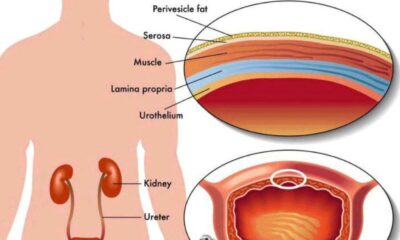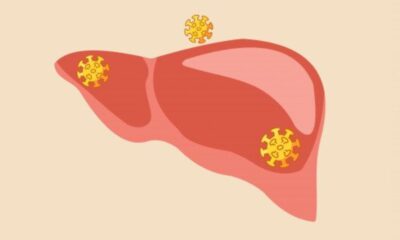Dates are an excellent natural sweetener. They are believed to have originated in Iran, although the Egyptians already made wine from them.
Dates are a tropical fruit grown on a date palm tree in small bunches. Scientifically known as Phoenix dactylifera, it is the tastiest and most nutritious fruit. It has a dark brown skin, soft flesh and is exceptionally sweet.
Whenever you have a craving for something sweet, instead of resorting to candy or sugar, opt for dates. They are just as sweet and much better for you.
Nutritional value of dates
Dates are very nutritious, especially dried dates. Dried dates are rich in calories, especially carbohydrates (74 grams). They also contain several essential vitamins and minerals, as well as fibre. Dates are famous for their rich concentration of antioxidants, which can be beneficial for heart and lung health, making them one of the most suitable heart-healthy foods.
The benefits of dates are:
According to experts at Healthline – Dates contain several nutrients that provide various health benefits to your body, from lowering cholesterol to bone health.
Lowers cholesterol
Dates should be included in your diet as they can instantly lower cholesterol and help control your weight.
Rich in disease-fighting antioxidants
Dates provide various types of antioxidants to treat different diseases. Antioxidants protect cells from free radicals that can cause harmful reactions in the body and lead to disease. Dates are rich in antioxidants including:
Carotenoids – This is very beneficial for heart health. It also reduces the risk of eye disorders.
Flavonoids – It is a powerful antioxidant with multiple benefits. It is known for its anti-inflammatory properties. Studies have shown it to be useful in reducing the risk of diabetes, Alzheimer’s disease and certain cancers.
Phenolic acid – Has anti-inflammatory properties and helps reduce the risk of some cancers and heart problems.
Strengthens bones
Dates are rich in copper, selenium and magnesium, important nutrients for maintaining healthy bones and preventing bone-related disorders. It is also rich in vitamin K, which helps regulate blood clotting and metabolise bones…Click Here To Continue Reading>> …Click Here To Continue Reading>>
People suffering from osteoporosis are more prone to bone fractures. Dates can strengthen bones and make them stronger.
Promotes brain health
Each date contains choline, a B vitamin that is very beneficial for the learning process and memory, especially in children with Alzheimer’s disease. Regular consumption of dates has been linked to a reduced risk of neurodegenerative diseases such as Alzheimer’s and improved cognitive performance in older people.
Dates are also helpful in reducing inflammation and preventing the formation of plaques in the brain, which is important in preventing Alzheimer’s disease.
Improves digestive health
Dates are high in natural fibre, with almost 8 g of fibre in 100 g of dates. This natural fibre helps to regularise bowel movements and improve overall digestive health. Normal, healthy digestion also has a cascading effect of improving the body’s other systems, such as better absorption of nutrients, improved liver and kidney health and also keeps you mentally relaxed. In addition, regular consumption of dates can help you avoid or even alleviate constipation and the many problems that come with it.
Helps detoxify the body
Dates and date extracts support liver health and also help prevent liver fibrosis. By supporting healthy liver function, dates allow the body to detoxify naturally, as the liver performs the task of keeping waste and harmful substances out of the body. Liver fibrosis is significantly reduced with regular consumption of date extract, which reduces the risk of developing liver cirrhosis.
Controls diabetes READ FULL STORY HERE>>>CLICK HERE TO CONTINUE READING>>>
Diabetes mellitus is one of the most common diseases. Most of the time, diabetes is treated with various oral diabetic medications and insulin supplements. Research suggests that dates are helpful in reducing blood sugar and fat levels.
It may increase insulin production and also help reduce the rate of glucose absorption in the gut. This may help reduce the risk of getting diabetes.
Satisfy your sweet tooth
Dates are the sweetest fruit with natural sugar content. It can reduce your cravings for unhealthy sweet products and sugar. It is a great substitute for white sugar because of its sweetness. So, the next time you think of eating something sweet, you can think of dates.
Improves skin
Dates are an excellent source of vitamin C and D which helps in maintaining the elasticity of the skin and keeps it smooth. Dates also have anti-ageing properties and prevent melanin build-up.
Helps with weight loss
Consuming dates every morning on an empty stomach before your workout can help keep you feeling good, give you a burst of energy and thus aid healthy weight loss. This is because dates are high in fibre, which slows absorption in the large intestine.
This makes you feel fuller for longer hours, reducing the need to eat more food, which equals more calories. The more calories you eat, the more you need to burn. Similarly, you can also gorge on 6-7 dates between your big meals as a healthy but satisfying snack. Dates can also boost metabolism by reducing the manufacture of short-chain fatty acids.
Solves insomnia
The other health benefits of dates include helping to deal with insomnia. If you have been suffering from insomnia for many months and are thinking of buying over-the-counter medication, you should stop for a moment and try a quick and easy home remedy with just a few ingredients to solve the problem naturally.
Make a drink with dates, fox nuts and milk all mixed together and drink it before bedtime. Try it for a couple of weeks and notice the difference.
Improves heart health
A handful of dates a day can improve your heart health. Dates have antioxidant properties that help prevent the formation of atherosclerosis and prevent heart disease.
There are some other benefits of dates, especially in men and women. They are as follows:
Improve sexual health in men – Dates have been consumed for years as a fabulous food that also enriches men’s sexual health. Some research claims that dates can improve your sexual stamina.
Increase sperm count – Dates contain flavonoids and estradiol which have positive effects on increasing sperm count and sperm quality.
Benefits of dates for women
Combats iron deficiency – According to studies it has been found that women are naturally more prone to suffer from low haemoglobin in the body. If you are suffering from an iron deficiency you should consider incorporating dates into your daily diet rather than buying iron supplements.
Consuming natural foods rich in iron is always the best option rather than taking supplements or medicines. For adequate nutrition, take about 100 grams of dates a day, which is equivalent to about 4 servings.
Promotes natural childbirth – Eating dates in late pregnancy can make childbirth easier for you. It promotes cervical dilatation and reduces the need to induce labour. Dates successfully mimic the action of oxytocin and cause the natural contraction of the uterine muscle during labour.
Dates also have a compound called tannin that also helps facilitate uterine contractions during labour.
Prevent piles during pregnancy – Piles are the most common problem during pregnancy due to poor fibre intake. Dates are an incredible source of fibre. They can help reduce the risk of piles during pregnancy.
Bone health after menopause
Research shows that bone loss in post-menopausal women can be reduced by increasing potassium intake. One dried date provides a large amount of potassium and other nutrients. Scientists believe that a high potassium intake protects bone mass by reducing the amount of calcium excreted by the kidneys.




















